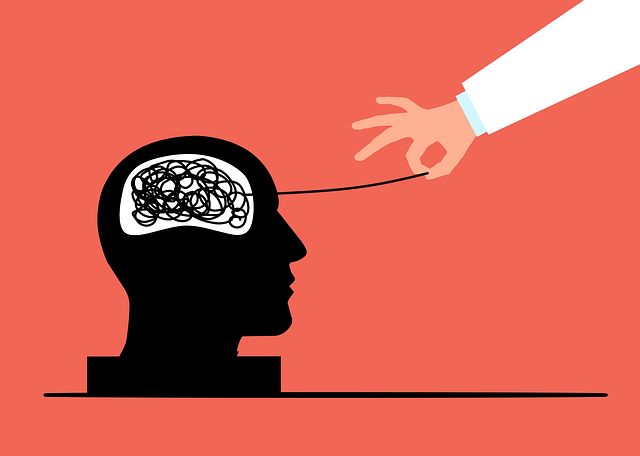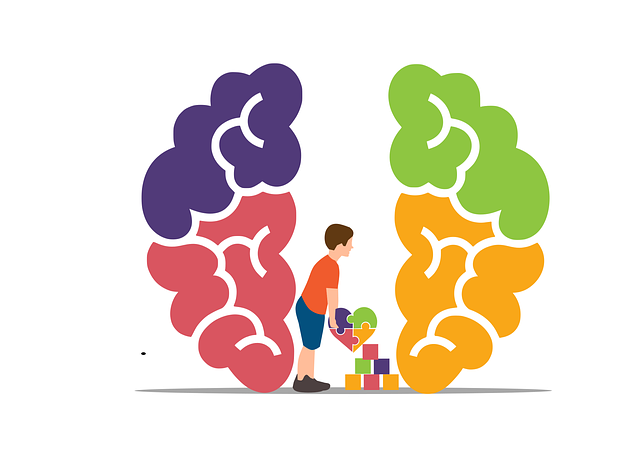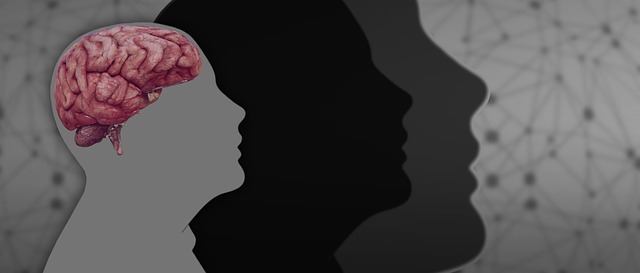Englewood Eating Disorders Therapy emphasizes holistic education and community engagement for effective treatment. Through diverse learning formats, multimedia content, and real-life stories, they empower participants with knowledge and skills for improved mental well-being. Collaborative partnerships with local institutions foster early intervention, cultural understanding, and reduced stigma, creating a supportive ecosystem accessible to at-risk populations.
In today’s world, mental health education programs play a pivotal role in empowering individuals to recognize and manage their well-being. This article delves into the intricate process of designing comprehensive programs, focusing on eating disorders, specifically Englewood Eating Disorders Therapy. We explore the foundational knowledge required to understand these complex issues, emphasizing the importance of engaging content. Furthermore, we discuss strategies for community engagement and support systems that enhance therapeutic outcomes, ultimately fostering a healthier society.
- Understanding Mental Health Disorders: The Foundation of Program Design
- Crafting Engaging Educational Content for Effective Therapy
- Implementing Support Systems and Community Engagement Strategies
Understanding Mental Health Disorders: The Foundation of Program Design

Understanding Mental Health Disorders is the cornerstone upon which effective program design for Englewood Eating Disorders Therapy and related initiatives must be built. Mental health conditions, including eating disorders, are complex neurobiological conditions that impact a person’s thinking, feeling, and behavior. Therefore, an educational program aimed at fostering awareness and support needs to provide accurate information about various types of disorders, their causes, symptoms, and available treatment options. This foundational knowledge empowers individuals to recognize struggles in themselves or others and seek appropriate help without stigma.
A well-rounded approach to program design incorporates not only the acquisition of knowledge but also the development of resilience-building skills, burnout prevention strategies, and social skills training. These elements are vital for fostering a supportive environment where participants feel understood, valued, and equipped to navigate life’s challenges with greater equanimity and confidence. By addressing these aspects holistically, programs like Englewood Eating Disorders Therapy can contribute significantly to improved mental well-being and long-term recovery.
Crafting Engaging Educational Content for Effective Therapy

Crafting compelling educational content is essential for an effective mental health therapy program, especially when addressing complex issues like eating disorders in a place like Englewood Eating Disorders Therapy. The key lies in creating engaging and interactive learning materials that resonate with individuals’ experiences. This can include diverse formats such as workshops, group discussions, and even a Mental Wellness Podcast Series Production tailored to various preferences and learning styles. By incorporating real-life stories, expert insights, and practical tips on Stress Reduction Methods and Burnout Prevention, the content becomes relatable and impactful.
Using multimedia elements like videos, infographics, and interactive quizzes can enhance engagement, making the learning process enjoyable and memorable. Each session should be designed to build upon previous knowledge, fostering a sense of progression and empowerment among participants. Through this immersive approach, individuals are more likely to absorb valuable information, develop healthier coping mechanisms, and ultimately support their mental wellness journey.
Implementing Support Systems and Community Engagement Strategies

Implementing support systems and community engagement strategies is a vital component of any comprehensive mental health education program. These initiatives aim to create a network of resources that cater to diverse individual needs, particularly focusing on at-risk populations like those struggling with eating disorders in areas such as Englewood. By fostering strong community connections, individuals can access essential services, share experiences, and build resilience. This approach not only enhances self-esteem improvement and confidence boosting but also empowers participants to take control of their mental health journeys.
Englewood Eating Disorders Therapy, for instance, could benefit from collaborations with local schools, community centers, and healthcare providers. Cultural competency training for healthcare providers is crucial in ensuring sensitive and effective treatment. These partnerships can facilitate early intervention, promote understanding of diverse cultural perspectives, and improve access to specialized services like therapy. Ultimately, such strategies create a supportive ecosystem that encourages open conversations about mental health, reduces stigma, and enables individuals to seek the help they need.
Mental health education programs play a pivotal role in fostering well-being, especially in addressing issues like eating disorders. By combining comprehensive knowledge of mental health disorders, engaging content strategies, and robust support systems, as highlighted by Englewood Eating Disorders Therapy, we can create impactful programs that not only educate but also empower individuals to take charge of their mental health. Implementable community engagement tactics ensure widespread reach, making these programs a game-changer in promoting overall well-being.














